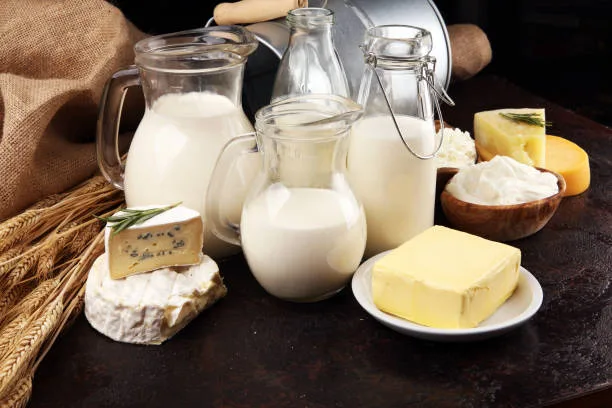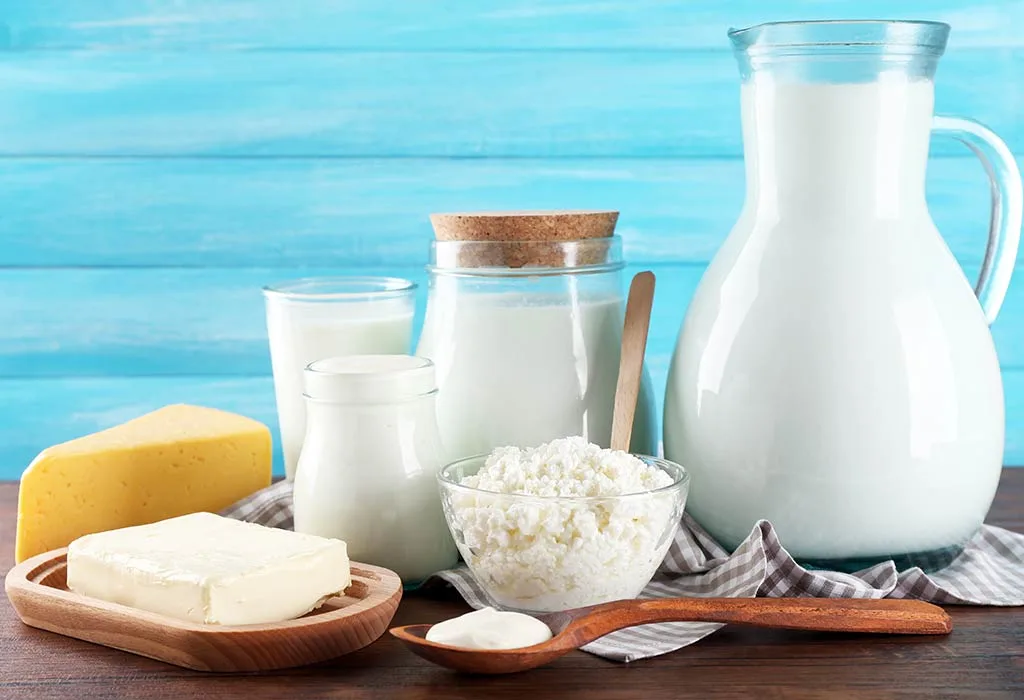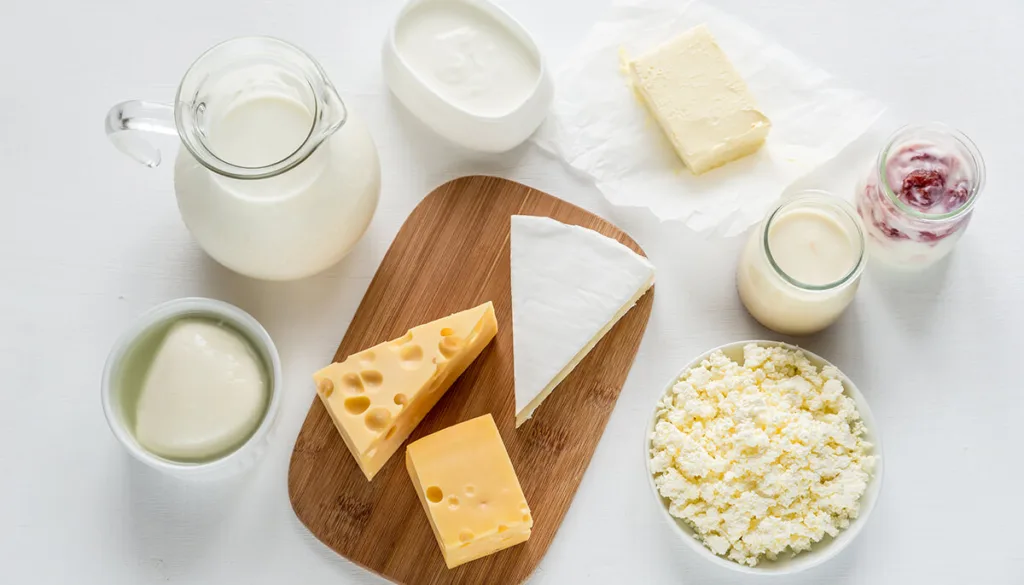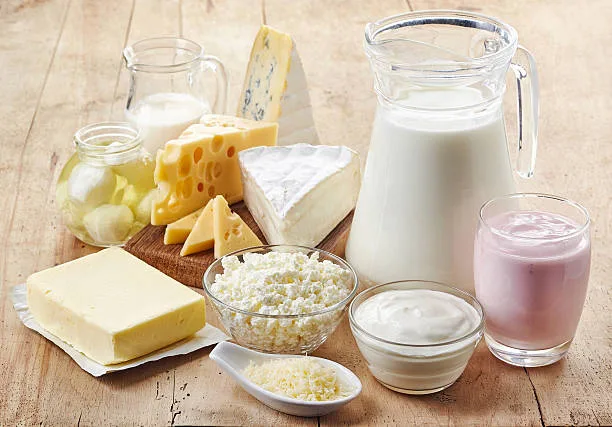Dairy products like milk, yogurt, and cheese have been dietary staples across cultures for centuries. From our first sip of warm milk as infants to mac and cheese as kids to lattes on the go as adults, dairy is interwoven into our lives. Given the widespread consumption of dairy, it may come as a surprise that in recent years, its role in our diets has come under scrutiny. Specifically, there is an ongoing debate among experts around whether dairy supports or hinders our weight loss efforts.
This is an important discussion because maintaining an optimal body weight is so essential for health and wellbeing. When we embark on weight loss journeys, nutrition inevitably plays a central role. Understanding how specific foods and food groups affect weight regulation can empower us to make more informed dietary choices that align with our goals. Dairy products are one food category that has especially sparked lively debate in terms of its potential upsides and downsides for weight management.
On one hand, dairy products like milk, yogurt, and cheese are packed with beneficial nutrients like calcium, protein, vitamins B2 and B12. Foods containing such nutrients would seemingly be great options for a diet geared towards weight loss and overall balance. On the other hand, full-fat dairy also contains saturated fats and a considerable amount of calories. This has led many dieters and health-conscious individuals to question whether dairy should have a substantial place in their diets if the aim is to lose weight. Can dairy foods actively support our weight loss efforts?
Or do they promote weight gain and work against our health goals? How do we make sense of such conflicting perspectives? In this post, we will dive deeper into the nuances of the dairy and weight loss relationship. We will analyze the nutritional profile of dairy, examine what the latest scientific evidence reveals, and provide some actionable tips for integrating dairy into a potentially successful weight loss diet. Let’s thoughtfully unravel the complex dynamics of dairy to understand if and how it can be an optimal part of a balanced, weight-conscious lifestyle.

Introduction
To kick things off, let’s briefly reflect on why this topic matters in the first place. In today’s modern world with its conveniences and technological advances, living an active lifestyle actually takes some effort. We have engineered so much physical activity out of our regular day-to-day routines. Sedentary desk jobs dominate over active professions.
Driving has replaced walking. Lifts and escalators allow us to exert minimal energy moving through buildings. While such progress has brought immense benefits, it has also made maintaining an optimal body weight more challenging. Being overweight or obese significantly raises the risks of numerous health issues like heart disease, diabetes, high blood pressure, and stroke. Losing excess body fat greatly reduces these risks and enables us to enjoy life with abundant health and energy.
For many seeking better wellbeing, committing to sensible dietary changes represents the most practical first step. When it comes to food and nutrition, dairy products provoke especially strong reactions and opinions. Those supporting dairy point to its high-quality protein for building lean muscle mass.
Dairy detractors highlight concerns about potential hormone content or unhealthy fats. Within this broader debate, let’s zero in specifically on the relationship between dairy and body weight control. By objectively evaluating the evidence, we can make thoughtful choices about how to approach dairy when striving for sustainable weight loss and better health.
The Nutritional Profile of Dairy Products
To start analyzing the role dairy may play in weight regulation, let’s explore the nutritional composition of these animal-based foods. Dairy products like milk, cheese, and yogurt contain varying amounts of protein, fat, carbohydrates, vitamins, and minerals. Here is an overview of some of the key nutrients found in dairy foods:
- Protein: Milk, yogurt, and cheese are all excellent sources of high-quality, complete protein containing all the essential amino acids. The protein content ranges from about 8 grams per cup of milk to 10 grams in a serving of Greek yogurt. Dietary protein promotes satiety after eating, preserves lean muscle mass during weight loss, and boosts metabolism through the thermic effect. These mechanisms likely contribute to the potential weight regulating properties of dairy protein.
- Calcium: Dairy products are among the very richest sources of dietary calcium. For example, a cup of plain low-fat yogurt can contain up to 450 mg of calcium, nearly half of the recommended daily intake. Calcium supports bone health and strength. Emerging research also indicates it may play a role in fat metabolism. By signaling fat cells to pump out less cortisol, calcium may help facilitate weight loss.
- Vitamin B2: Also known as riboflavin, B2 is a water-soluble B vitamin found abundantly in dairy products. It plays essential roles in energy production, red blood cell function, and activating antioxidants.
- Vitamin B12: Critical for neurological function and red blood cell formation, vitamin B12 is naturally present in dairy foods. It also supports heart health and energy levels.
- Phosphorus: Like calcium, phosphorus is vital for building and maintaining strong bones and teeth. Dairy is a prime source of this essential mineral.
When consumed in moderation as part of balanced mixed meals, dairy products can be nutritious additions to a diet that provide high-quality protein, bone-supporting calcium and phosphorus, and essential B-vitamins. The calcium in particular may have metabolism boosting properties that can support the goals of weight management.

Dairy and Weight Loss: What Does the Science Say?
Numerous studies over the years have directly examined the effects of dairy food consumption on body weight, body composition, and fat loss. This substantial body of research provides insight into how dairy influences weight control. The findings, however, have been somewhat mixed. Some studies show modest weight loss benefits from dairy. Others suggest dairy may contribute to weight gain in some individuals. Let’s analyze the science to date:
- A frequently cited 2005 study published in the International Journal of Obesity followed overweight and obese adults for 12 weeks as they followed a calorie-restricted diet. One group consumed 3 servings of dairy daily while the other minimal dairy. The high dairy group lost significantly more body fat, especially around the waist, compared to the low dairy group.
- A meta-analysis pooled data from 29 controlled clinical trials comparing calorie-restricted diets with high dairy intake vs low dairy. Increased dairy consumption as part of calorie-controlled eating patterns resulted in statistically greater reductions in body weight and body fat than the low dairy diets.
- The large scale Danish National Birth Cohort study assessed milk consumption among over 50,000 pregnant women. Follow up years later found that participants with higher milk consumption consistently gained less weight over time compared to those who drank little to no milk, even when controlling for other factors.
- However, other studies including a 2015 meta-analysis of randomized controlled trials showed no significant difference in weight or fat loss between high dairy intake and low dairy intake groups. This suggests dairy may have a neutral effect on weight rather than a direct benefit.
When it comes to different types of dairy products, the evidence indicates that yogurt and cheese may have more favorable metabolic effects compared to fluid milk:
- In a one-year controlled trial, adults assigned to eat 3 servings of yogurt per day experienced smaller annualized increases in waist circumference and body weight compared to a control group given non-dairy snacks.
- Another randomized study found probiotic yogurt consumption reduced body fat percentage, waist circumference, and hip circumference more than a non-dairy control food.
- A study in obese adults had subjects add three daily servings of ricotta cheese, cheddar cheese, or butter to their normal diets for 6 weeks. Those getting cheddar cheese or butter lost significantly more visceral abdominal fat than the ricotta group.
The disparities in study outcomes reflect the inherent complexity of the relationship between dairy intake and body weight regulation. Different study designs, dairy food types, and participant characteristics likely contribute to the mixed results. However, collectively the research to date suggests dairy foods like yogurt, cheese, and milk, when consumed as part of an overall balanced and calorie-controlled diet, may potentially support fat loss and prevent weight gain to a modest degree.

The Role of Probiotics in Dairy Products
Now let’s explore an emerging area of interest when it comes to dairy and weight management: probiotics. Probiotics are live microorganisms that confer health benefits to the host when consumed. Dairy foods like yogurt, kefir, and even aged cheeses are among the best dietary sources of probiotics.
The live active cultures used to ferment dairy act as natural probiotics. These good bacteria support digestive and immune system functioning when we ingest them. An exciting area of research is illuminating how probiotics may also benefit weight regulation and body composition. Here are some of the key mechanisms by which probiotics in dairy foods may influence weight:
- Probiotics improve the balance between beneficial and potentially harmful bacteria in the gut microbiome. Imbalances or dysbiosis in the gut microbiota have been linked in studies to obesity, metabolic dysfunction, and weight gain. Optimizing the gut flora with probiotics may support healthy weight.
- By improving digestion and nutrient absorption from food, probiotics allow the body to derive the proper nutrition from our diets to support a healthy weight.
- Probiotics reduce intestinal inflammation, strengthen gut barrier integrity, and decrease leaky gut permeability. This promotes overall health and may discourage systemic inflammation that triggers weight gain.
- Via intricate signaling pathways, probiotics can increase satiety after meals. This causes us to feel full sooner and for longer by slowing digestion kinetics and optimizing appetite-regulating hormones.
The compelling mechanistic evidence suggests that consuming probiotic-rich dairy products like yogurt with active cultures, kefir, aged cheeses, and probiotic-fortified milk could complement weight loss efforts. Supporting the gut microbiome looks to be a promising lever for optimizing body weight and composition.
Practical Tips for Incorporating Dairy into a Weight Loss Plan
If you are currently working towards fat loss and a healthier body weight, you may be wondering how to approach dairy. Can you realistically include nutritious dairy options as part of a balanced weight loss diet? Let’s explore some practical tips for choosing quality dairy foods that may complement your weight management regimen:
- Opt for low-fat or nonfat dairy: Whole milk dairy products contain more saturated fat and calories than the lower fat varieties. Choosing skim or low-fat milk, nonfat Greek yogurt, and reduced-fat cheeses allows you to obtain dairy’s beneficial nutrients without all the extra calories.
- Watch your portions: While nutritious, dairy foods are also calorie-dense. Be mindful of overdoing portion sizes. The recommended serving for milk is about 1 cup, yogurt is 3/4 to 1 cup, and reasonable portions of cheese are around 1.5 ounces. Measure out controlled amounts instead of eyeballing.
- Pair with fiber or protein: Enjoy dairy as part of balanced meals and snacks that also contain fiber, lean protein, veggies, or fruit. This helps control blood sugar spikes and sustains satiety. For example, have yogurt with berries, cheese slices with an apple, or cottage cheese with avocado.
- Choose plain over flavored: Pre-flavored yogurts, fruit juice smoothies, and chocolate milk often contain added sugars. Limit these and instead stick to plainer dairy products that are naturally low in sugar like plain Greek yogurt or kefir.
- Read labels when buying: Check the Nutrition Facts panels to pick options lower in fat and added sugars. Also avoid dairy products with artificial sweeteners and other additives.
- Mix it up: For variety, swap milk for yogurt or kefir, have cottage cheese with fruit, blend plain Greek yogurt into smoothies, and shred cheese over salads or eggs. Changing up how you eat dairy keeps things interesting.
With a little care and creativity, it is certainly possible to incorporate nutritious low and non-fat dairy foods as part of an eating pattern geared towards successful and sustainable weight loss.
Potential Pitfalls: Dairy and Weight Gain
While dairy can potentially fit into a slimming diet, there are some potential downsides to look out for if you are prone to weight gain or find losing fat challenging:
- High calorie intake: Full-fat dairy products like whole milk, heavy cream, and butter remain high in calories. Consuming large amounts of such items can lead to excessive calorie intake, hindering efforts to maintain or lose weight.
- Hidden sugars: Many common dairy items targeted to kids and adults alike including flavored yogurts, fruit juice smoothies, and chocolate milk beverages contain added sugars. The surplus calories from added sugar get consumed quickly and can easily exceed daily limits.
- High energy density: Calorie-dense dairy products with small volumes but high fat content like cheese, cream, and butter lack bulk and are easy to overeat. Careful portioning is key for these items to avoid overdoing calories.
- Milk allergies or lactose intolerance: Some individuals experience gas, bloating, stomach pain, and indigestion from consuming dairy, either from allergies to milk proteins or lactose intolerance. The gastrointestinal issues triggered can negatively impact weight.
Being mindful of serving sizes, choosing low or no-fat options, and limiting sugary dairy indulgences can help prevent unwanted weight gain resulting from uncontrolled dairy intake. Those with dairy sensitivities or who are avoiding saturated fats would be wise to minimize high-fat dairy consumption and monitor portions of lower fat alternatives like skim milk and nonfat yogurt.

Dairy Alternatives for Weight-Conscious Individuals
For those proactively avoiding dairy due to lactose intolerance, allergies, or weight management considerations, suitable alternatives are available. Plant-based milk options like almond milk, coconut milk, soy milk, oat milk, and rice milk all offer additional choices in the grocery aisle. Here is a quick look at some popular dairy-free milk options and their nutritional attributes:
- Almond milk: Made from ground almonds and water, unsweetened almond milk has only 30 calories per cup. This makes it low in both fat and carbohydrates.
- Coconut milk: Derived from the flesh of coconuts, one cup of unsweetened coconut milk beverage contains 50 calories and 5 grams of fat. Look for no added sugars.
- Soy milk: A plant-based milk alternative higher in protein providing 6-10 grams per cup, with around 100 calories. Again, choose unsweetened varieties to avoid extra calories from added sugar.
- Oat milk: Contains healthy soluble fiber, vitamins, and minerals. Unsweetened oat milk clocks in at about 130 calories per cup, making it low-calorie option.
- Rice milk: The most hypoallergenic non-dairy alternative. Rice milk is made by milling rice and blending it with water. One cup contains 120 calories.
These plant-based milk options often have fewer calories and less saturated fat compared to animal milk from cows or goats. When transitioning away from dairy, be mindful of nutritional differences. Opt for unsweetened, vitamin-fortified varieties.
Conclusion
Dairy continues to be a controversial food category when it comes to weight management and combating obesity. The totality of evidence suggests dairy foods like yogurt, milk, and cheese can play a beneficial role in supporting weight loss efforts when consumed in moderation as part of an overall balanced and calorie-conscious diet.
Dairy provides high-quality protein to preserve lean mass, calcium that may optimize fat burning, and valuable vitamins and minerals. Compared to full-fat dairy, lower fat options are ideal for limiting calories. Probiotic-rich choices like live culture yogurt and kefir may offer metabolism-enhancing benefits by promoting a healthy gut microbiome.
Those wanting to avoid dairy due to personal preferences or intolerances can look to unsweetened plant-based milk alternatives like soy or almond milk that are lower in calories and fat than cow’s milk. At the end of the day, sensible portions and nutritious choices are key for successfully integrating dairy into an eating pattern geared towards weight loss and better body composition. With the right dairy choices and mindset around moderation, you can feel good about the dairy foods included in your diet.
Thank you for exploring the nuances of dairy and weight management with us today! To stay up to date on the latest insights about food, nutrition, health and wellness, don’t forget to subscribe to our newsletter. We also invite you to share your own thoughts and experiences with dairy in the comments below. Do you consume dairy as part of your diet, and if so, what are your go-to products? What are your top tips for enjoying dairy sensibly while losing weight? Let’s keep the insightful discussion going.
Thank you for reading this post, don't forget to subscribe to our free newsletter
!
